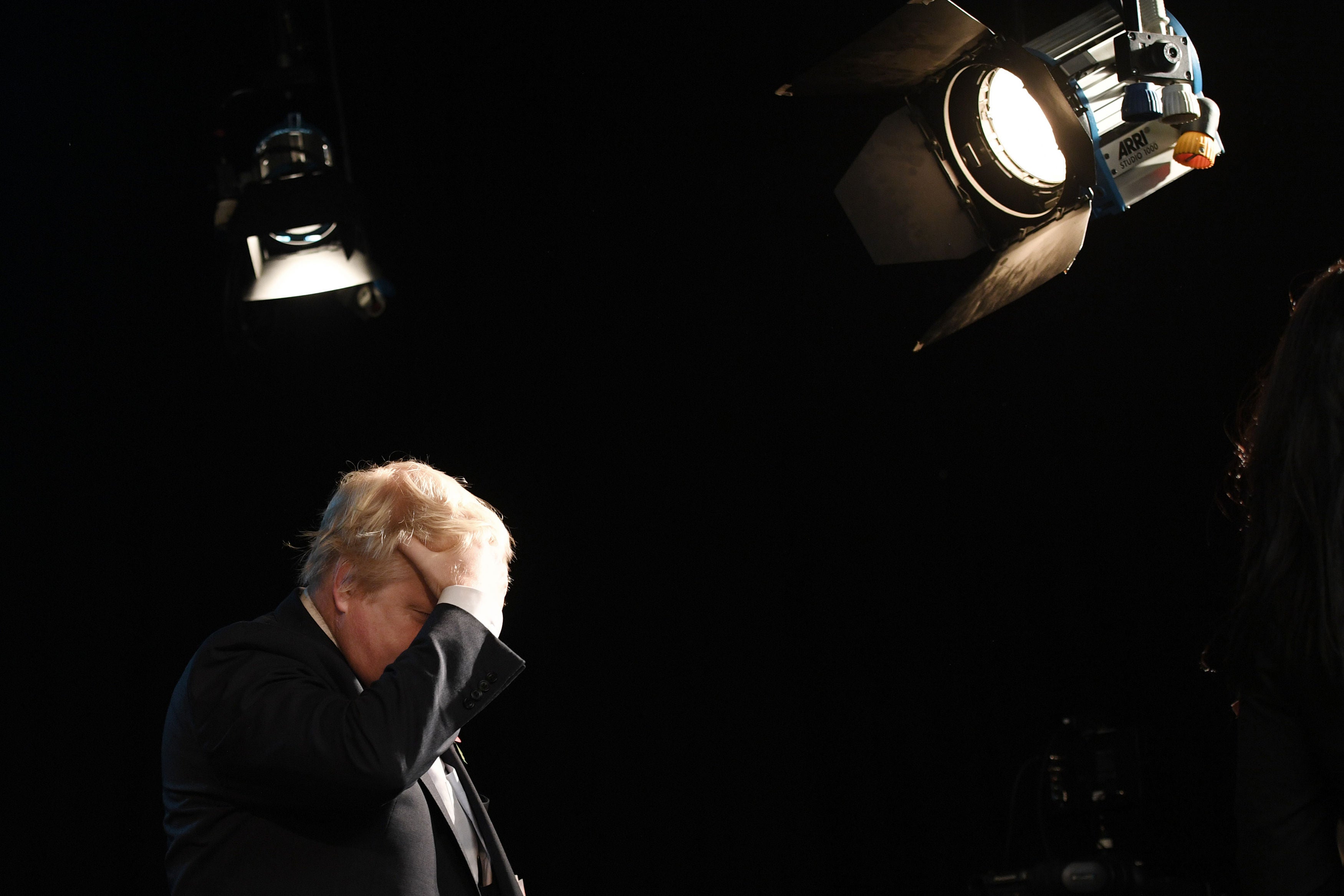How the local elections could make or break Boris Johnson
Hanging on to the keys of Downing Street is not the only political challenge facing the prime minister, writes John Curtice


Your support helps us to tell the story
From reproductive rights to climate change to Big Tech, The Independent is on the ground when the story is developing. Whether it's investigating the financials of Elon Musk's pro-Trump PAC or producing our latest documentary, 'The A Word', which shines a light on the American women fighting for reproductive rights, we know how important it is to parse out the facts from the messaging.
At such a critical moment in US history, we need reporters on the ground. Your donation allows us to keep sending journalists to speak to both sides of the story.
The Independent is trusted by Americans across the entire political spectrum. And unlike many other quality news outlets, we choose not to lock Americans out of our reporting and analysis with paywalls. We believe quality journalism should be available to everyone, paid for by those who can afford it.
Your support makes all the difference.Thursday’s local elections have been widely billed as potentially make or break for the prime minister. If the Conservatives lose heavily, Tory MPs might decide that Partygate has significantly damaged their electoral prospects, and mount a challenge to unseat him. Conversely, if Tory losses are apparently no more than might be expected in midterm, Johnson might succeed in persuading his colleagues to stick with him.
At first glance, the omens are not good for Boris Johnson. His party shows no sign of recovering the poll lead it enjoyed in this parliament until his probity and ethics became the subject of controversy. On average the Conservatives currently trail Labour by six points. That represents as much as a nine-point swing since the 2019 general election.
However, this week’s elections are very different from the general election. Most of the seats up for grabs in England were last fought over in May 2018, when Theresa May was trying to keep her fractious party together on Brexit, while Jeremy Corbyn was fending off claims of antisemitism.
The Conservatives were only narrowly ahead in the polls, while the BBC’s projection of the local election results into the equivalent of a general election outcome put the two parties on 35 per cent apiece. That very different baseline means the current national polls are only pointing to a three-point swing from Conservative to Labour – a figure that polls of voting intention have largely echoed.
This could well produce Tory losses of a few hundred seats – but it would not necessarily look like a tsunami that threatened to sweep Johnson out of Downing Street.
Two other features of the local elections could potentially come to the prime minister’s rescue. First, not everywhere is voting – and the places with elections are disproportionately in the more urban and thus the more Labour half of England. Not least, London is voting this year (it only does so once every four years) and nowadays the capital is a Labour fiefdom. The party already controls 21 of the 32 boroughs, while the Conservatives are defending just seven.
Second, although outside of London the Conservatives are defending control of almost as many councils (34) as Labour (36), in most cases (unlike London) only one-third of the seats are being contested. This not only means that the outcome in London will feature disproportionately in the tallies of seat gains and losses – accounting of over 40 per cent of the seats in England – but also limits the chances of changes of control.
Overall, the Conservatives will be defending just 1,400 seats, while Labour are the current incumbents in 2,200. Even if the Tories were to lose one in four seats, that would still mean only 350 net losses – well below previous local elections.
Tory losses of overall control could prove particularly thin on the ground – albeit in the capital they could include two icons. For years, Wandsworth Tories have pursued a low council tax regime and repeatedly retained control even when the party was struggling nationally. But it now looks highly vulnerable. Another low tax Tory council, Westminster, might be on the edge. Failure to retain these two Thatcherite councils that the former prime minister never lost would be a particularly sore defeat.
We might also add Barnet (where Labour suffered in 2018 from the antisemitism row), Southampton, Newcastle-under-Lyme and Worcester. But the list could be not much longer than that.
In Scotland, however, the prime minister does face a challenge. All the country is voting – but using a proportional voting system that makes it very different for any party to gain control anywhere. As the whole country is voting at the same time (unlike England), the local elections serve as a mega opinion poll.
Crucially, the last round of elections was in 2017, not in 2018 – when the Tories were riding so high in the polls that Theresa May had already called a general election. The party did especially well in Scotland. It nearly doubled its share of the vote, achieving 25 per cent and its best performance since 1982, while being five points ahead of Labour. Here, Johnson’s party is defending a high baseline.
The polls do not look good for the Conservatives. Since Christmas, every poll of voting intention in Scotland has them in third place, behind Labour. If this happens, it will be the first time since 2016 that the Conservatives have failed to claim second spot and the role of principal advocates of the union. But perhaps such a reverse will not worry most Tory MPs as much as whatever happens in England.
To keep up to speed with all the latest opinions and comment sign up to our free weekly Voices Dispatches newsletter by clicking here
However, the most immediate difficulty that Thursday’s results will create for the prime minister could come from Northern Ireland’s Assembly election. The row over the Northern Ireland protocol that Johnson’s government negotiated, an agreement many claim creates a border across the Irish Sea, has fragmented the unionist community. In particular, it has resulted in a substantial decline in support for the largest unionist party, the DUP.
The polls suggest that, for the first time since partition in 1922, a unionist party will no longer come first in votes. The DUP with no more than 20 per cent is badly trailing Sinn Fein on 26-27 per cent. The DUP might pick up some seats when, under the transferable vote system, the party picks up lower preferences from the smaller unionist parties. Even so, it looks likely that under the Good Friday Agreement, Sinn Fein will be able to claim the first minister’s post, leaving the DUP with the deputy first minister’s position.
That is a consolation prize for which the DUP may not be willing to settle – unless at least the UK government abrogates some of the provisions of the protocol. But doing that would not only upset Sinn Fein, but also run the risk of retaliation by the EU. Hanging on to the keys of Downing Street is not the only political challenge facing the prime minister.
John Curtice is professor of politics at Strathclyde University, and senior research fellow at NatCen Social Research and ‘The UK in a Changing Europe’
Join our commenting forum
Join thought-provoking conversations, follow other Independent readers and see their replies
Comments